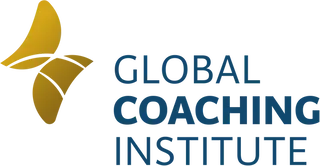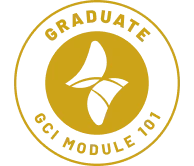In earlier posts I have written about a central tenet of coaching which states the client is whole, capable and resourceful.
Nothing brings this home quite so much as working with senior executives who hold levels of organisational and industry insight that few coaches could hope to match. The gift of being outranked by an executive’s expertise in their area of endeavour, is that we have no option but to sit back and do what we are being paid to do – and that is coach them!
However coming to the realisation that we don’t need to be the expert, is a learning journey – and it isn’t without its pitfalls.
A Crisis of Identity
Relinquishing expertise can bring on a crisis of identity for those of us accustomed to the role of technical expert or guide. Many coaches were once or still are consultants, leaders or therapists. Becoming a coach involves a change of focus and skillsets.
We can take for granted and sometimes don’t even realise the extent to which we rely on being the one with the answers. I know this struggle from the inside out. It’s a challenge that commands my attention regularly, ensuring I’ve learned its lessons thoroughly.
Many of our earliest discoveries about what is rewarded in life occurred in grade school. I was the girl whose hand always shot up to answer the teacher’s questions. I learned that knowledge and having the answer was the main currency of the classroom. And boy was I good at it. I worked hard at the game and usually got the answers right, and got a little dopamine rush to reward me each time. My sense of identity was underpinned by being a clever girl. I scored highly. My teachers were happy. My parents were happy, and I knew how to be an expert.
You can imagine my shock when coach training asked me to drop my capacity to know the answer. The profession asked me to abandon what for so many years I’d thought of as my key asset. The more I tried to know the answer, the more my trainers and mentors shook their heads. I scowled at them for changing the rules for success. They smiled back, but they didn’t let me off the hook. Thankfully they insisted that I take a deep breath, soothe my ego, and face up to this new way of being.
Do you have a dependency on expertise?
Most of us only realise how closely we are wedded to being an expert when we need to relinquish the role. Here are some responses that often pop up in coach training programs.
Why am I here if I’m not bringing my wisdom and experience?
I’m not sure what to do if I don’t offer an interpretation.
If the client can manage without me … what value am I bringing?
The change in professional practice can be disorienting. It’s not that we are doing nothing as coaches, we are doing something different. We are facilitating insight, learning and action by partnering with clients as equals.
Unlearning Our Habits
Once we appreciate that the client’s inherent capability can and should exceed our own, most emerging coaches enter a process of unlearning. We need to stop being experts in the content or context of the session, and become experts in supporting the client’s discovery instead. For many of us, this isn’t easy. Even committed client-centred practitioners find it surprising how often they rely on subtly framing the client’s narrative, rather than inviting them to engage in the meaning-making process themselves.
Understanding the Costs
To overcome our reliance on expertise we need to understand both the payoffs and the costs of being seen as the expert.
As coaches, it’s our role to support and challenge clients to connect with their own tacit knowledge. If we try to show our own knowledge, we can limit our client’s connection with their own expertise and authority.
We can rob our clients of that magical A-ha moment in which they know deeply, in every cell of their being, what needs to be done. It is not just know-how but commitment and accountability that are borne of these moments.
The simple fact of the matter is that clients know more about their situations than we do.
Getting across even a fraction of the information and understanding they’ve gleaned over months and sometimes years would take more time than is available. If you need convincing, think about the hours and intensive research involved in large consultancy projects. Getting the pertinent data on the table is a laborious business.
Any coach who falls into the trap of becoming overly involved in the content, or trying to become an expert will soon find their client becoming irritated. Our efforts to contribute or bring ourselves up to speed will slow the client down, wasting valuable time on the clock and coaching dollars going over information that is for the coach’s benefit and already well understood by the client.
Our precious coaching time is much better spent expanding and deepening the client’s reflections on the central challenge and how they relate to it. Leaders need to progress their thinking, not explain it all to their coach every time they meet.
Learning to Trust Our Clients
Letting go of your desire to know all the facts is not only essential but highly doable. It usually comes with practice and good supervision with a coach-mentor who supports you with humor and grace through the inevitable identity and/or practice crisis. It is a process of accepting our client’s expertise as superior to our own in their situation. We must trust their authority.
The Benefits
When emerging coaches learn to let go of expertise, they free up bandwidth for tracking different sorts of information. They are able to observe what is happening in the moment; the areas where their client’s thinking flows and where they meet roadblocks. This is where the coach’s skills are needed. When we support and challenge our clients to discover their own way of dealing with those roadblocks, we earn our coaching fees.
Our contribution and relevance lies in our ability to pay attention to the client’s developmental process or the systemic factors operating in the background, within their organisations and the society. We listen for the patterns that inform our clients decisions, rather than trying to make their decisions for them.
Want to hone your ability to discover and work with the deeper developmental processes of diverse clients? Check out our forthcoming programs.
Reflections:
How have you managed the temptation to be an expert?
What are the coaching skills that your clients value most?





